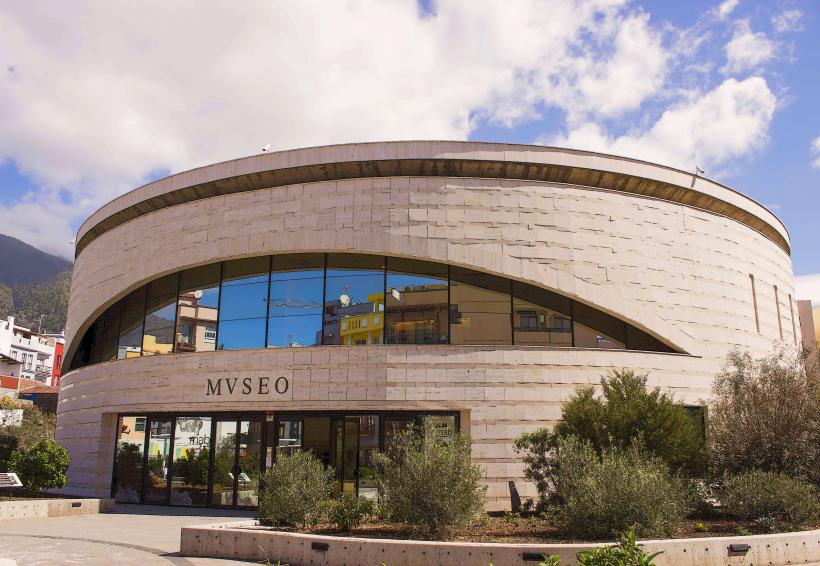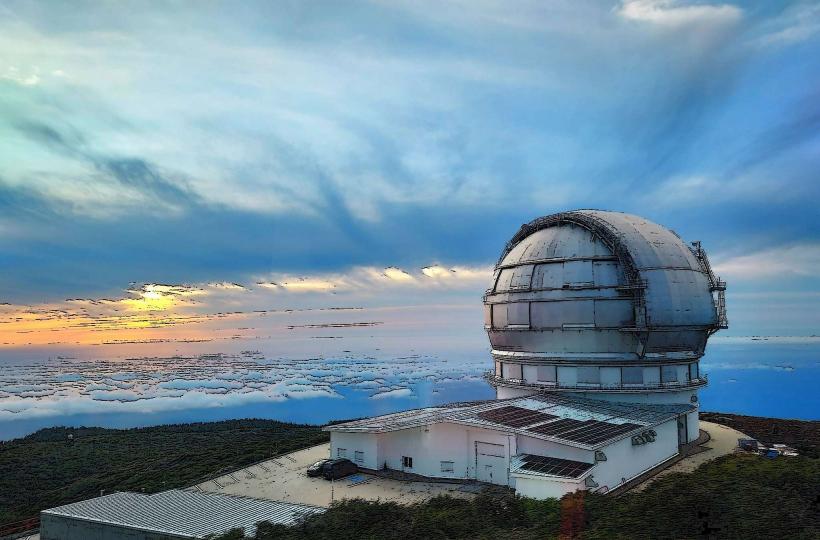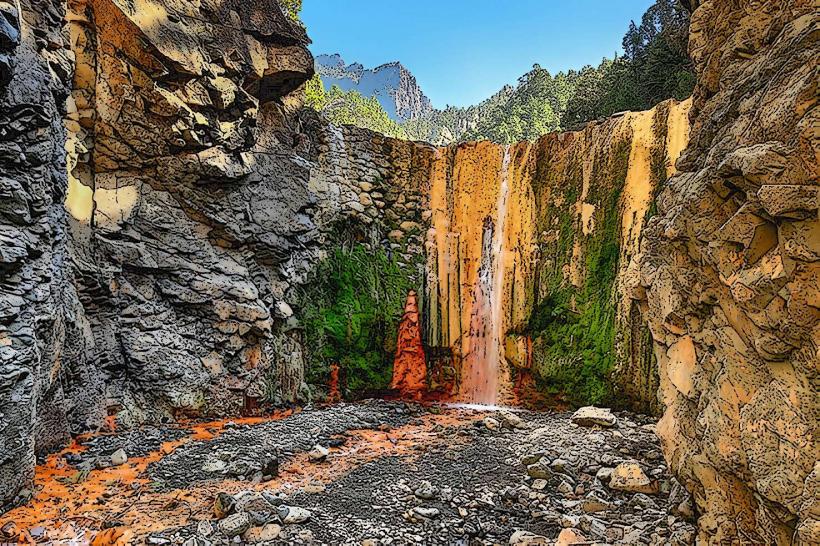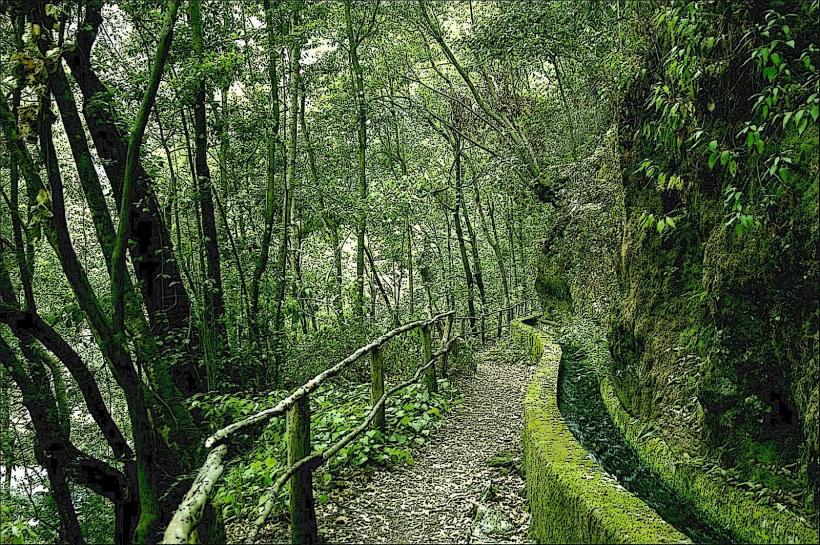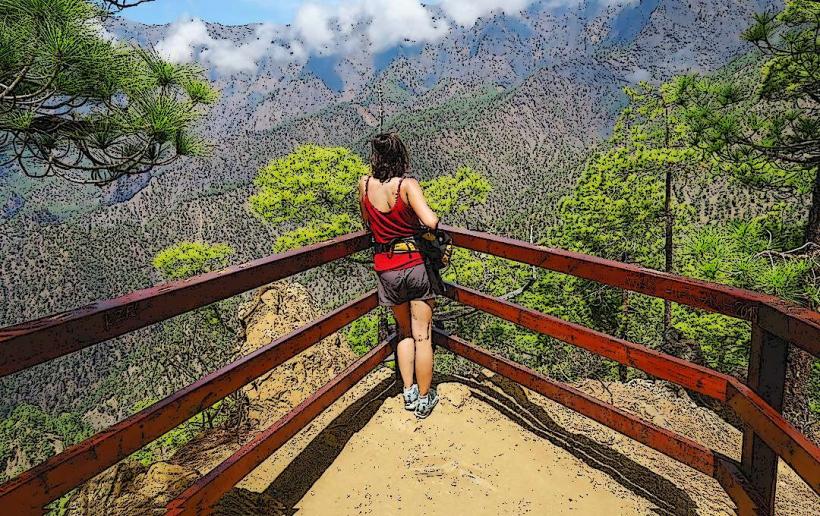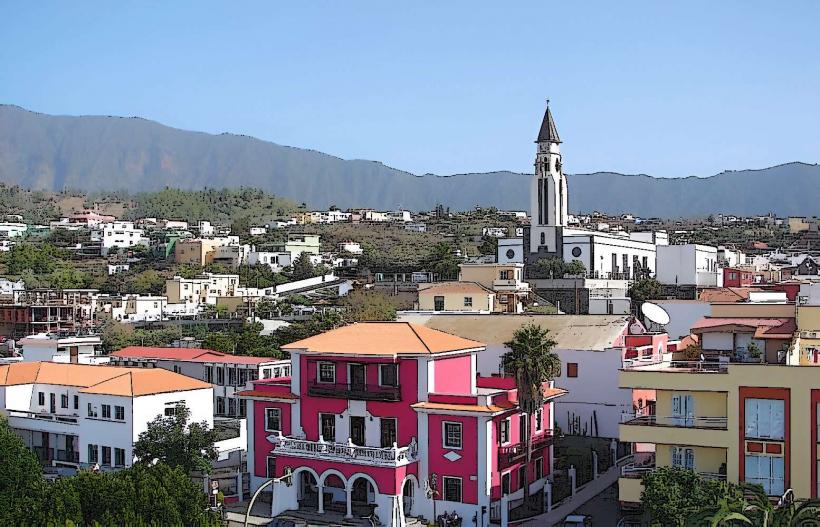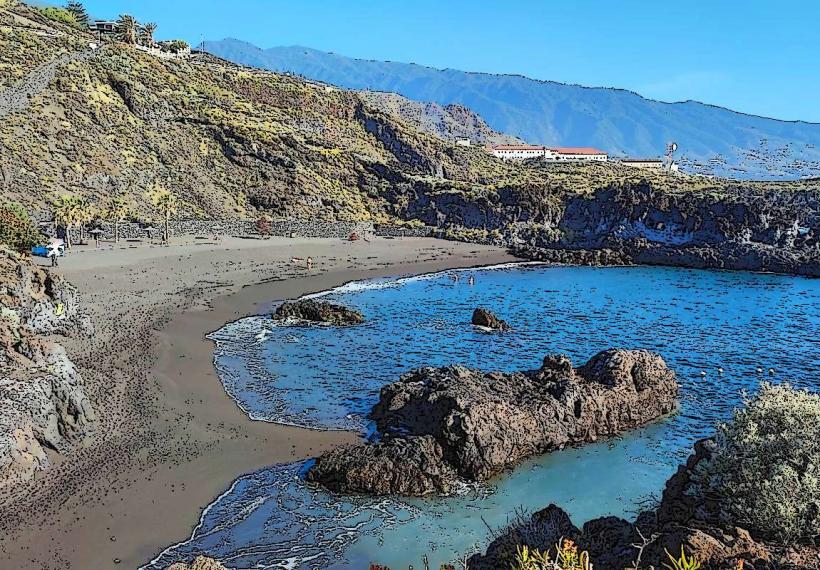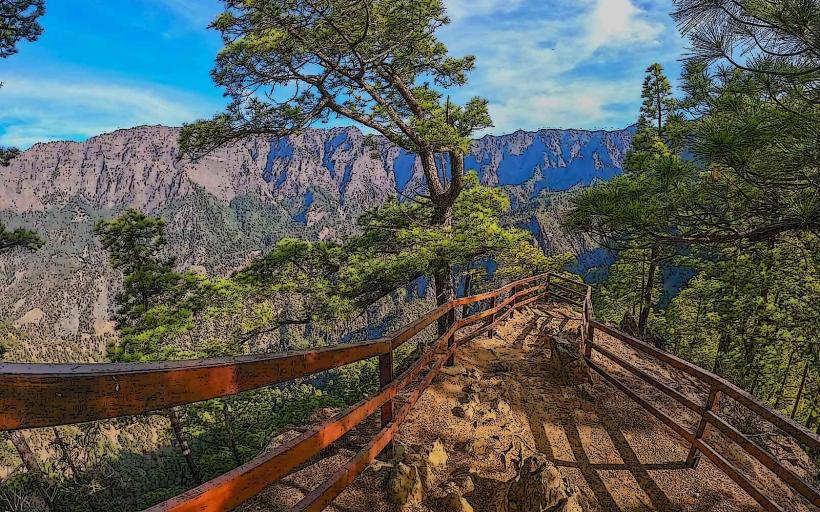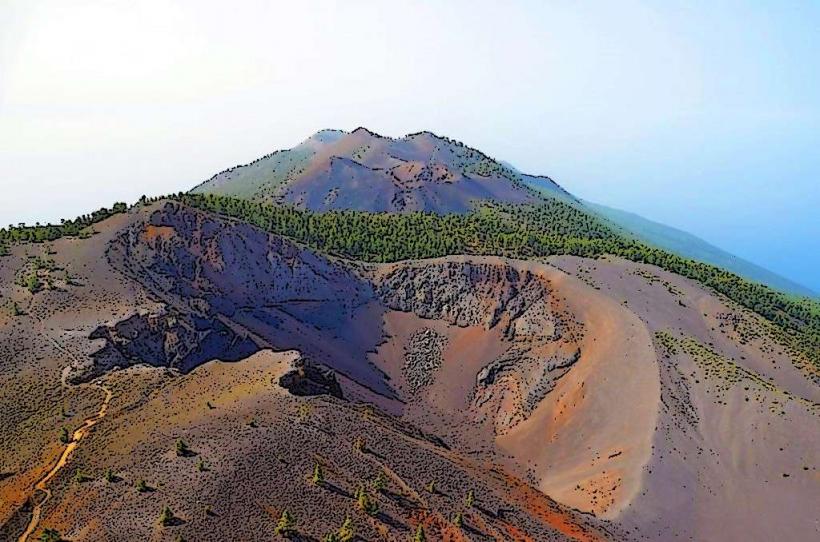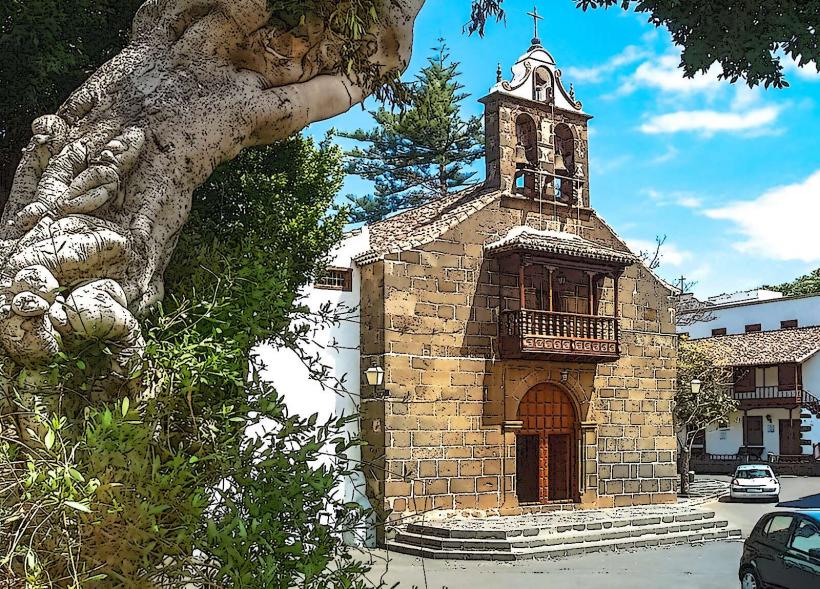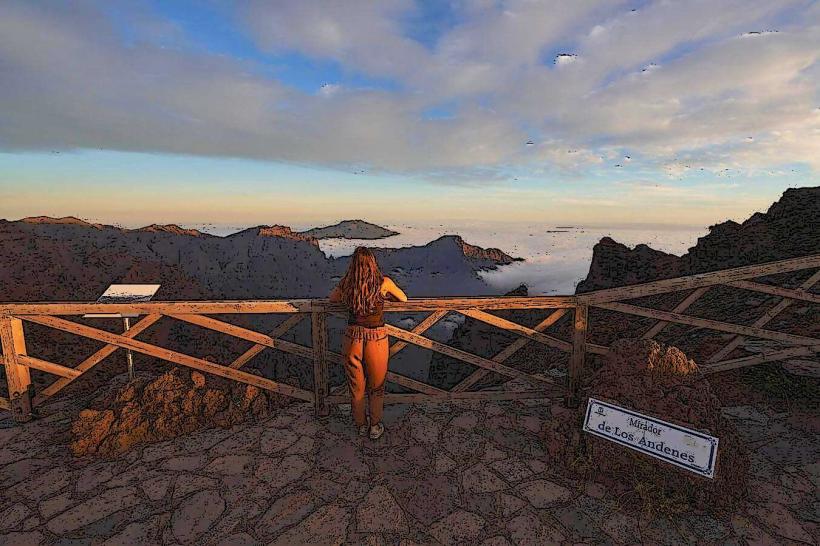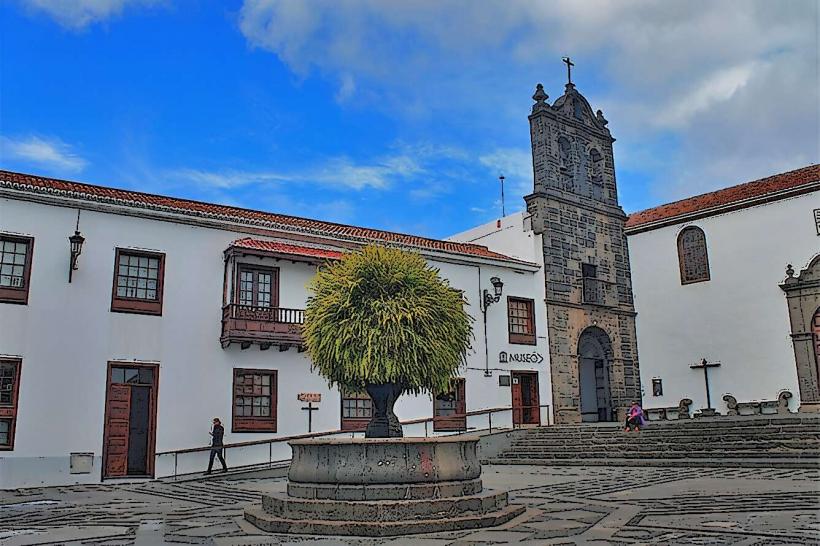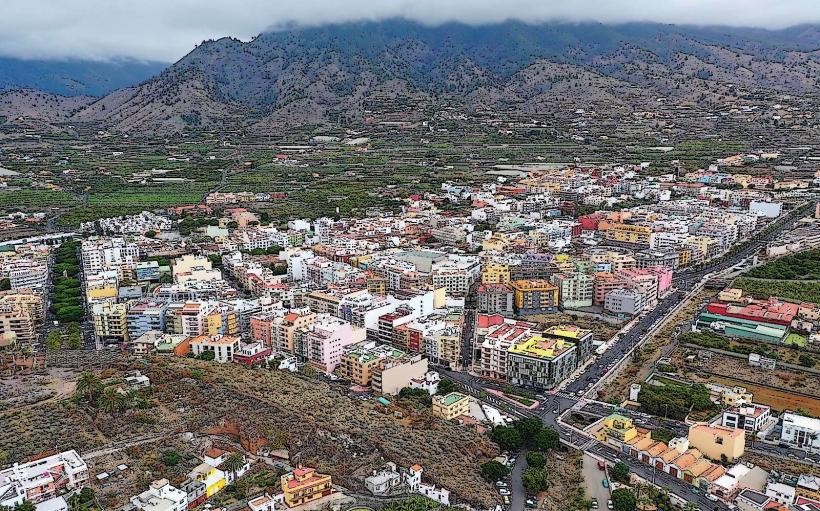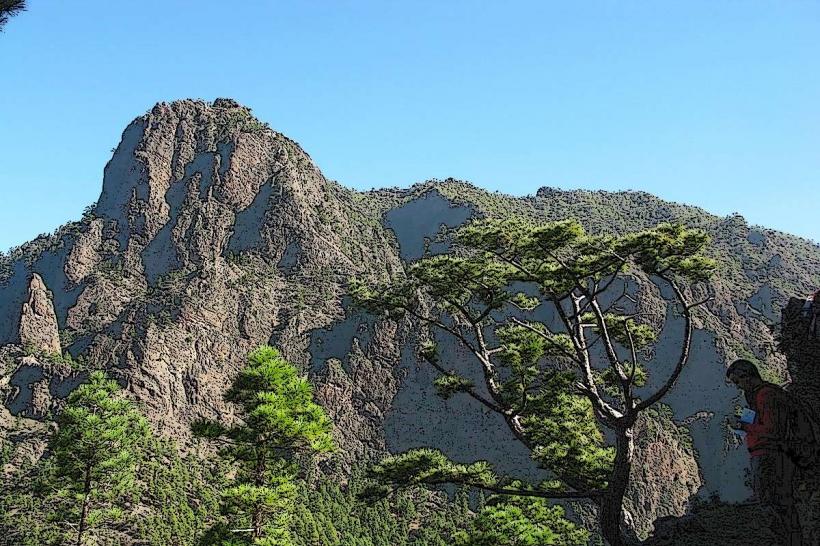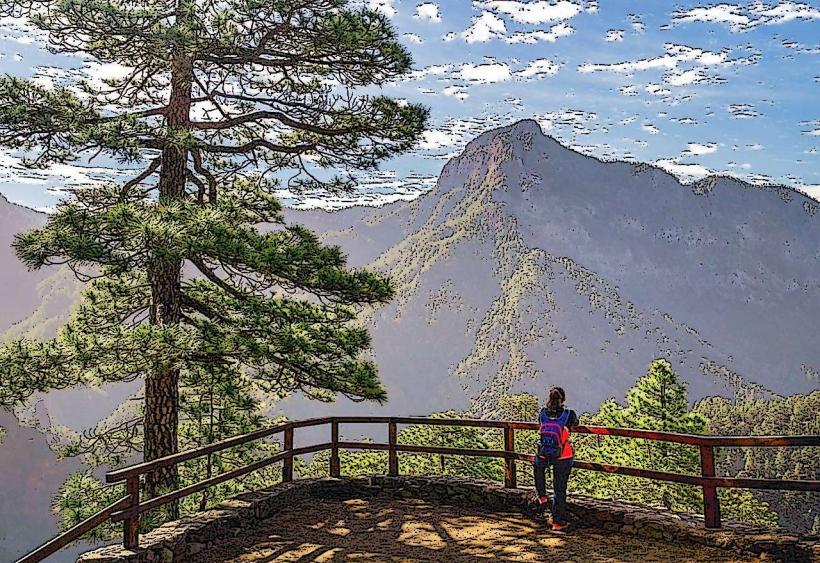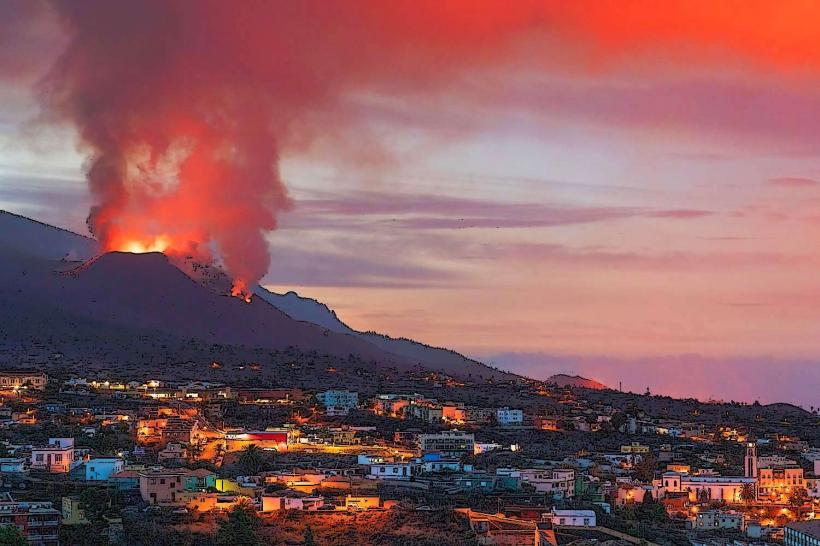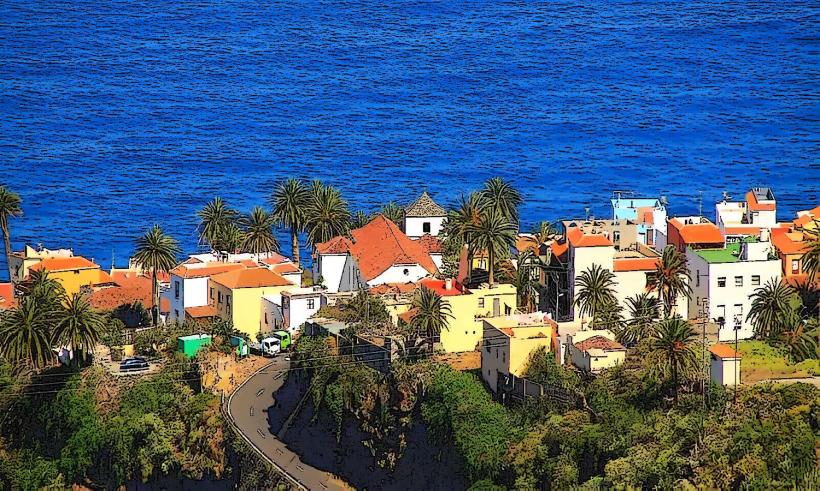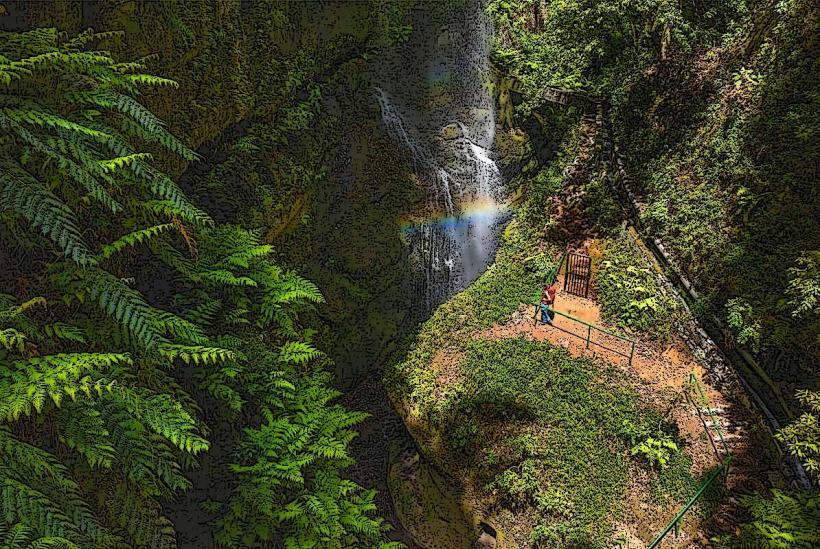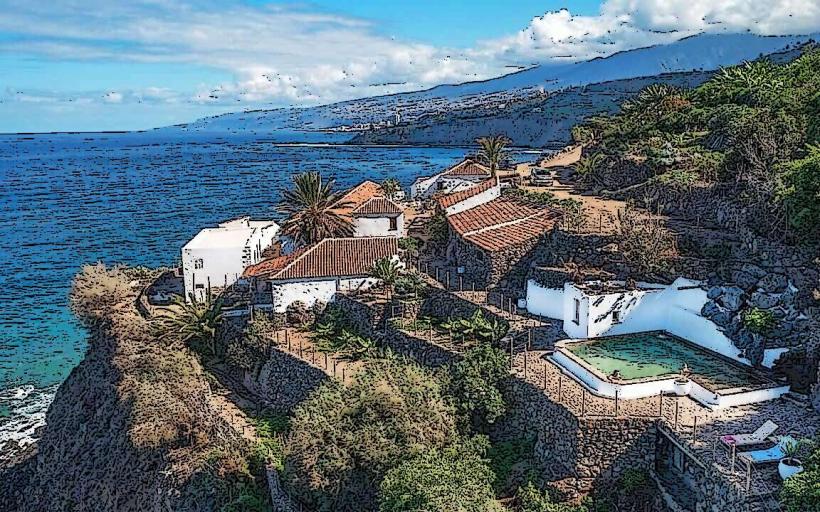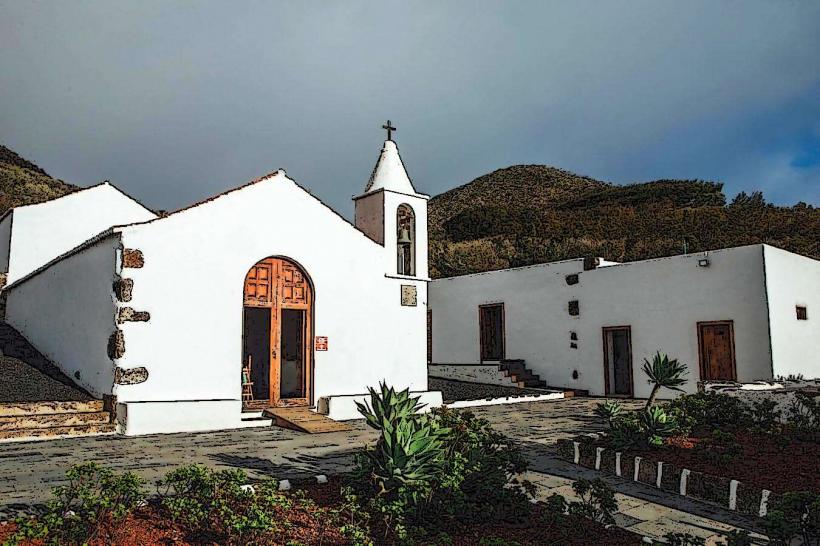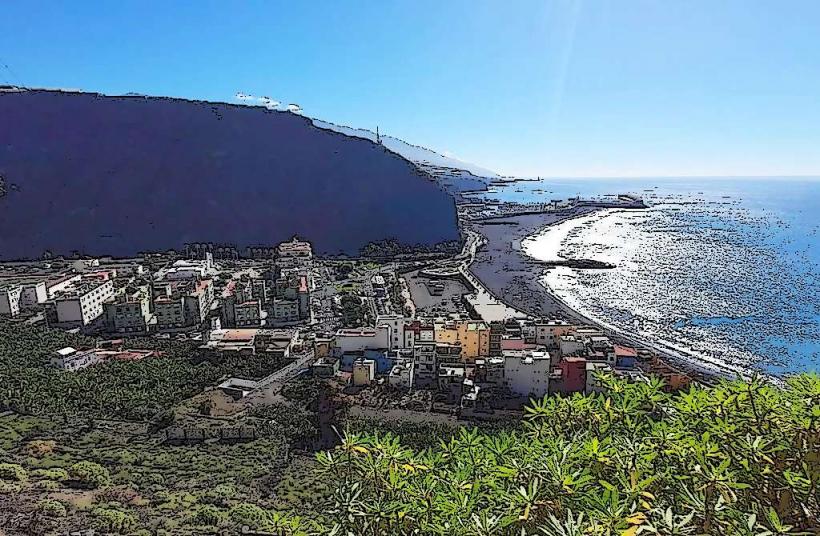Information
Landmark: Roque de los MuchachosCity: La Palma
Country: Canary Islands
Continent: Europe
Roque de los Muchachos, La Palma, Canary Islands, Europe
Roque de los Muchachos is the highest point on the island of La Palma, Canary Islands, serving as a prominent volcanic peak and a major international astronomical observatory site. It is situated within the Caldera de Taburiente National Park.
Visual Characteristics
The landmark consists of a rugged, rocky volcanic peak reaching an elevation of 2,423 meters above sea level. The summit area is characterized by dark, exposed volcanic rock formations and sparse high-altitude vegetation. Numerous white and silver astronomical observatory domes of varying sizes are distributed across the ridgeline, contrasting with the dark rock and often appearing above a sea of clouds.Location & Access Logistics
Roque de los Muchachos is located approximately 45 kilometers northeast of Santa Cruz de La Palma. Access is primarily via the LP-4 road, which is a winding mountain road. Designated parking areas are available near the summit and the observatory complex. Public transport options are limited; visitors typically use private vehicles, taxis, or organized tour buses.Historical & Ecological Origin
The peak is a natural geological formation, part of the rim of the ancient Caldera de Taburiente, a massive erosion caldera. Its formation is a result of successive volcanic eruptions and subsequent erosion over millions of years. Ecologically, it represents a high-altitude volcanic ecosystem, home to endemic flora adapted to extreme conditions. The astronomical observatory complex began construction in the 1980s, chosen for its exceptional atmospheric stability and minimal light pollution.Key Highlights & Activities
Visitors can engage in panoramic viewing from designated viewpoints, offering vistas of the caldera, the island of La Palma, and often other Canary Islands such as Tenerife, La Gomera, and El Hierro. Hiking trails, including sections of the GR 131 long-distance path, traverse the area. Organized stargazing tours are available, and some observatories offer guided daytime visits, which typically require advance booking.Infrastructure & Amenities
Restroom facilities are available at the visitor center located near the observatory complex. Shade is limited due to the exposed mountain environment. Cell phone signal (4G/5G) is generally available at the summit and observatory areas. There are no permanent food vendors directly at the summit; visitors are advised to bring their own provisions.Best Time to Visit
The best time to visit for clear views and comfortable temperatures is typically from May to October. For photography, sunrise and sunset offer dramatic lighting conditions. Visiting when a cloud inversion is present below the summit provides a unique visual experience. Winter months can bring snow and potential road closures.Facts & Legends
The name "Roque de los Muchachos" translates to "Rock of the Boys," possibly referring to specific rock formations on the peak that resemble figures. The site is recognized as one of the world's premier locations for astronomical observation due to its high altitude, stable air currents, and strict light pollution controls. It houses the Gran Telescopio Canarias (GTC), one of the largest optical-infrared telescopes globally.Nearby Landmarks
- Gran Telescopio Canarias (GTC) – 0.5km West
- Nordic Optical Telescope (NOT) – 0.7km Southwest
- Isaac Newton Group of Telescopes (ING) – 1.0km Southwest
- Mirador del Roque de los Muchachos – 0.2km East
- Hiking trails within Caldera de Taburiente National Park – Adjacent

